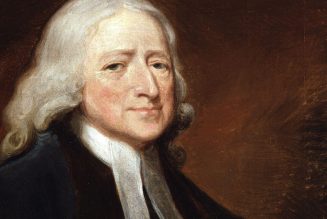Over the past few days, there has been discussion on X/Twitter – and I suppose elsewhere – of the morality of the United States dropping the atomic bomb on Hiroshima and Nagasaki.
Not that this is a new discussion, but it rose again because of Tucker Carlson’s strong statement on Joe Rogan’s show that the act was immoral.
As I perused various arguments on That App, especially among Catholics, one person I didn’t see mentioned – and this rather surprised me – was Catholic philosopher and Oxford Don Elizabeth Anscombe.
Anscombe was a fascinating figure – Catholic convert, student of Wittgenstein, married, mother of seven and important figure in 20th century philosophy.
Gertrude Elizabeth Margaret Anscombe was one of the most important philosophers of the twentieth century. She worked on an unusually broad array of topics: the entire range of the history of philosophy (ancient, medieval, modern, recent), metaphysics, epistemology, philosophy of language, philosophy of mind/psychology, philosophy of action, moral philosophy, political philosophy, and the philosophy of religion. As a result, this entry will have to be very selective. Despite the fact that her work is often cryptic and difficult, it greatly influences philosophers working in action theory, moral philosophy, and the philosophy of mind. Like the work of her mentor Ludwig Wittgenstein, studying Anscombe’s work generates insight after study and struggle.
In the Catholic non-philosophical world, aside from her stance on the atomic bombing and aggression against non-combatants in general, she is most well known for her stance against contraception, articulated in a 1972 article called Contraception and Chastity.
In 1956, Oxford was due to award Harry Truman an honorary degree. Anscombe objected. The degree was awarded and Anscombe wrote up her objections in a pamphlet called Mr. Truman’s Degree. You can read the pamphlet here.
From an excellent brief introduction to Anscombe, published in 2019 in Commonweal.
“Indeed, in writing her pamphlet “Mr. Truman’s Degree,” Anscombe saw that many of her Oxford colleagues were prepared to accept a conclusion that she and Daniel had presented as a reductio ad absurdum. These philosophers endorsed a doctrine that Anscombe came to call consequentialism, according to which there are no kinds of action—such as murder, rape, torture, and adultery, for example—that any person is prohibited from doing regardless of the situation he or she is in. According to this doctrine it can be right to “attack any one anywhere,” as long as the balance of the consequences speaks strongly enough in favor of it. Faced with a group that found this conclusion acceptable, Anscombe needed to try a different tack.”
If you are interested in her life, I highly recommend this episode of the BBC Radio’s In Our Time – which give due attention to her conversion story, as well as ably explicating the basics of her philosophy, although I fear for some of us – aka me – even the ablest explanations are for naught.









